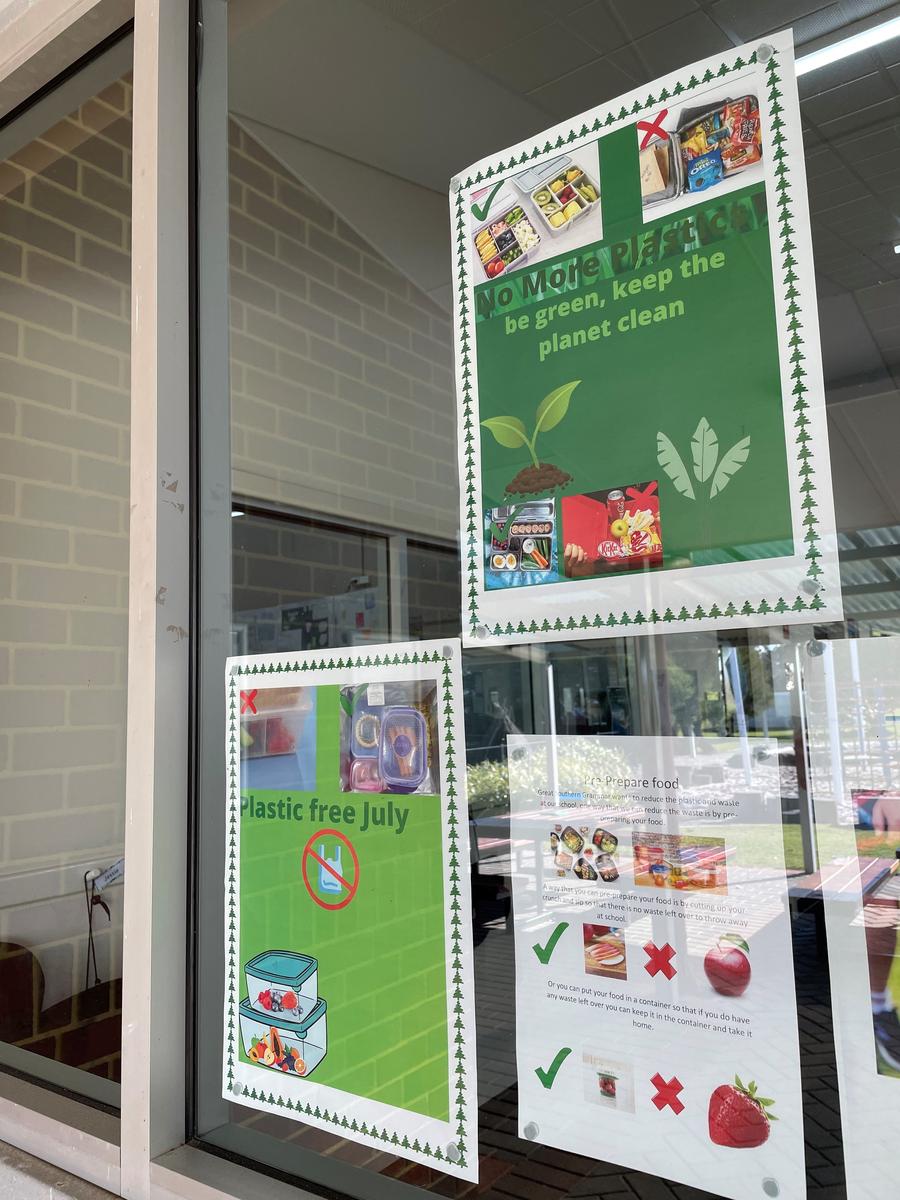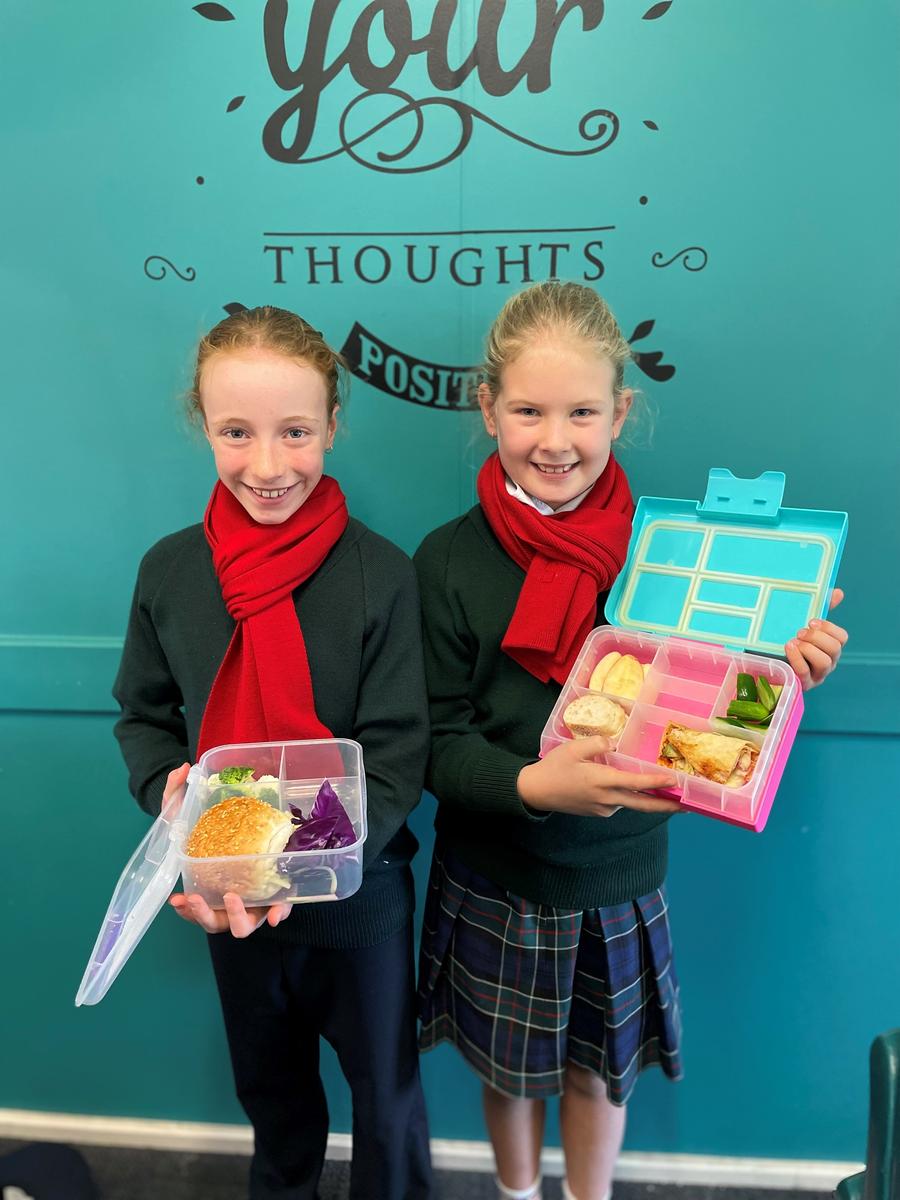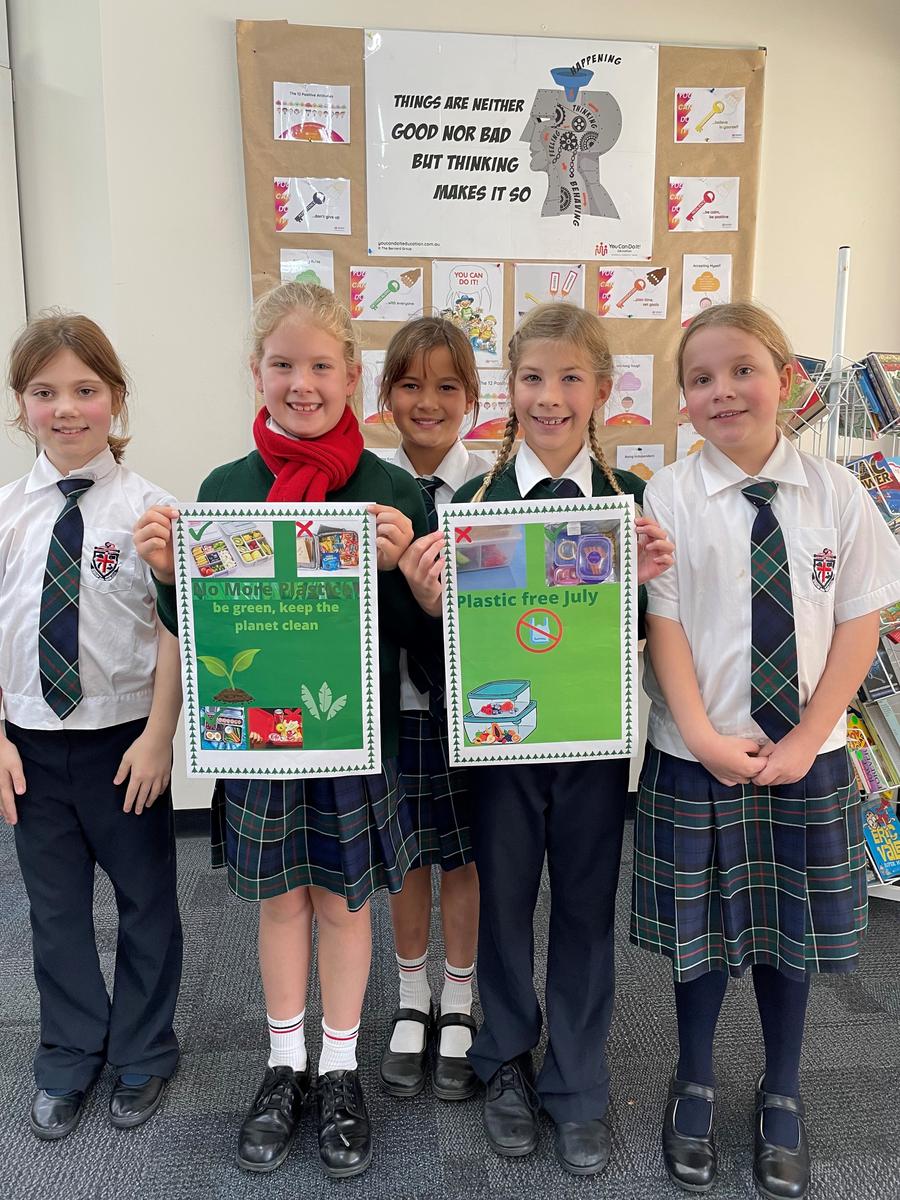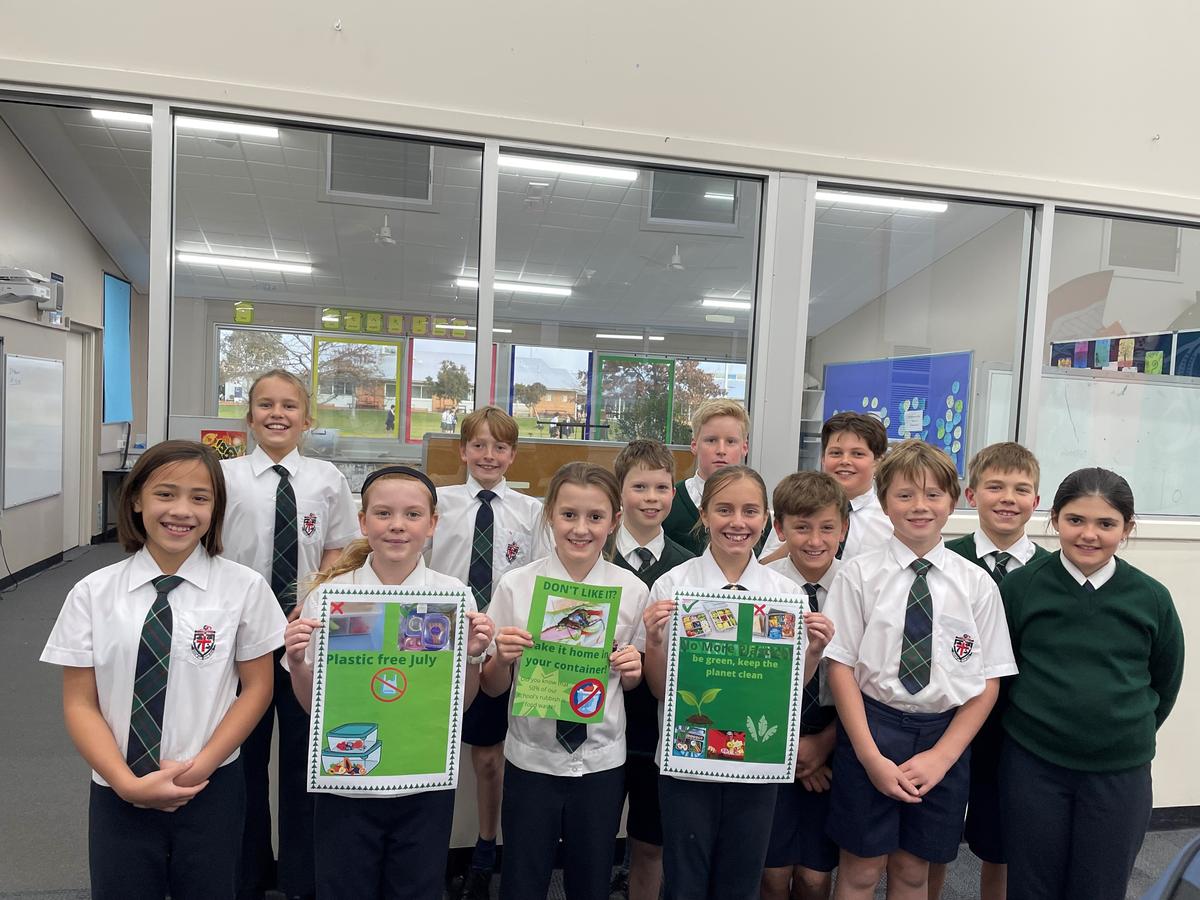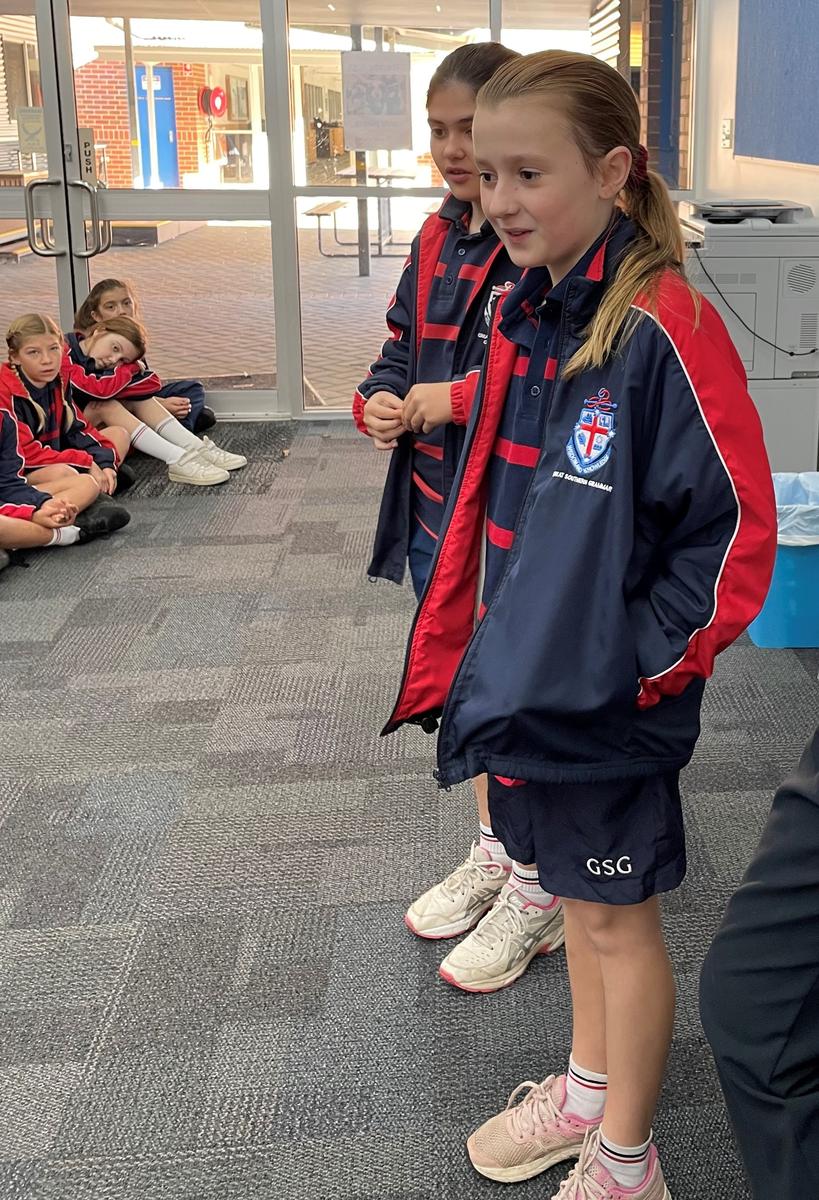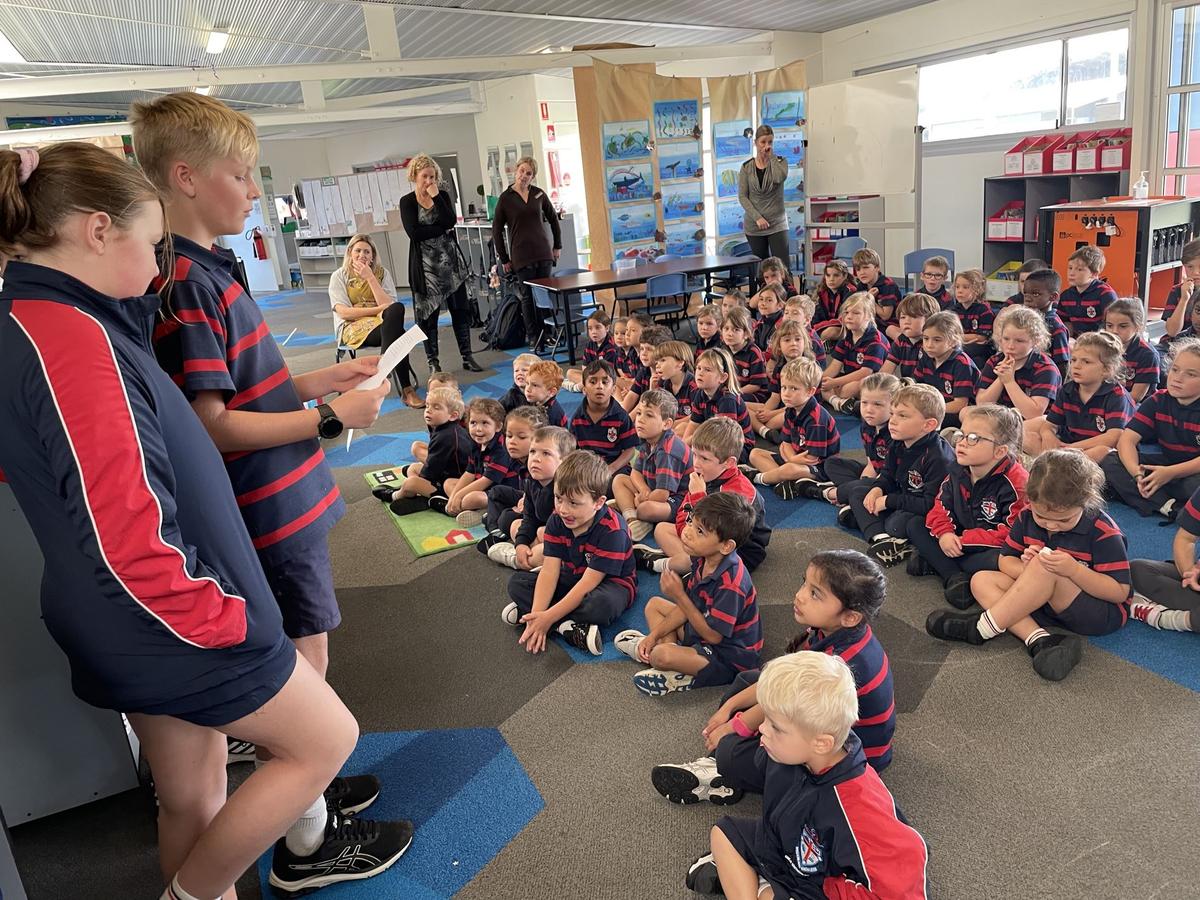Junior School
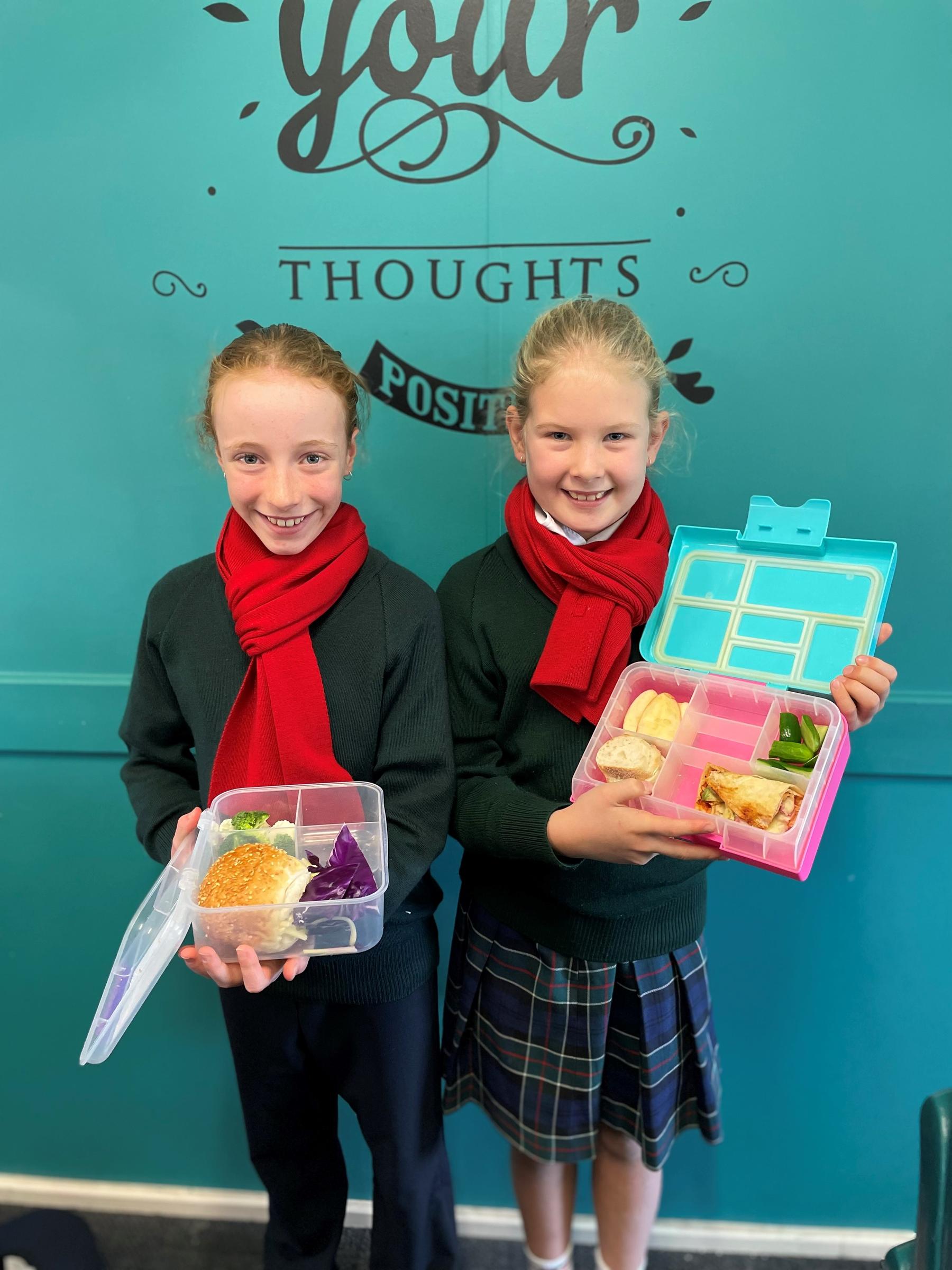
Junior School Green Team
A Green Team has been established in the Junior School to help our school environment whilst providing opportunities for leadership and collaboration. Students from Years Four and Five have been selected as part of this team. Right now we are teaming up with Mrs Berryman and Environment Prefect Kelvin Hands to continue the School’s war on waste! Members of the Green Team helped Brad from Cleanaway conduct a whole school waste audit to work out the areas we can target. Did you know 50% of the waste weighed was food waste? Decreasing this will be our focus for the next few months before we team up with Mr Gugenheim to look at our environmental sustainability.
Plastic Free July will be our first initiative beginning on Thursday 1 July and continuing into the first two weeks of Term Three. Members of the Green Team will be monitoring lunch boxes daily and the class with the highest percentage of no single use plastics will receive a whole class reward. They have made posters themselves for this which are on display throughout the school. More on this can be found here: https://www.plasticfreejuly.org/
Term Three Initiatives: The Green Team are working on educating our Junior School on ways to reduce waste before implementing two specific days after July. These will be 'Take Home Tuesday' (everything goes back into your lunch box, not the bin) and 'Waste Free Wednesday' (the same as Plastic Free July). They are currently brainstorming ways to reduce food waste each day as well.
The Green Team Members:
Maddie Stratico, Macy Emberson, Charlize Bromhead, Parker Bowey, Amaya Sepkus, Blythe Marmion, Beatrix Darling, Max Thompson, Ysabella Gavin, Elza Mulder, Lachlan Ellis, Denver Jenkins, Sofia Bird, Sophie Pearson, Myla Griskonis, Matilda Leov, Lenny Williamson, Alice Roberts, Marnie McCormack-Mason, Samuel Osborne, Billy Hick, Grace Gors, Madi Bradford, Nathan Tomlinson, Levi Ravenhill, Luke Buckovic, Jack Hughes.
Mrs Leah Field | Assistant Head of Junior School
From the Head of Junior School
The final Learner Attribute to be profiled this Term is ‘Responsible’.
There are many different contexts for ‘being responsible’. We are focusing though on the context of learning.
What does it mean to be a responsible learner? Why would we value this so highly for our students?
I can’t recall the exact moment, and perhaps there wasn’t a single ‘moment’ as such, but I do remember a shift in my thinking when I understood that I was ultimately responsible for my own learning. I began to see the correlation between my deliberate choices, leading to likely outcomes. Sounds obvious now, but it was quite empowering at the time because it shifted the locus of control for my learning inwards towards me rather than external factors. My teachers were there to help me of course, as were my family and friends, and I had access to resources, but I drew confidence from knowing that my own sense of responsibility was the key factor contributing towards my learning outcomes – the responsibility for my learning was mine to own. I found this reassuring. Exams and assignments were never really daunting after that, I knew that provided I did the preparatory work, I’d be fine – more than fine. I think this might have been when I really started to enjoy the process of learning.
In the Junior School, our younger students eagerly take on responsibility with designated classroom jobs. There will be students responsible for handing out books, changing over signs each day, taking the bus diary up to the office, cleaning the whiteboards, packing away equipment etc. They enjoy being helpful, but they are also learning to be responsible for maintaining the classroom environment for learning. Individually, students are taught to be responsible for being prepared with materials like pencils, workbooks, water bottles and fruit snacks.
As students get older, being responsible may also include managing their time to complete tasks, choosing topics for research that link to the learning, seeking further support when they require assistance and working collaboratively or independently depending on the task.
So, what does it mean to be a responsible learner? Why would we value this so highly for our students?
Responsible learners are able to contribute to the broader environment of learning as a class, and understand how managing their own responsibility helps them learn as individuals. We value this because understanding how to be responsible for our learning sets students up for positive and successful experiences. Incrementally and age appropriately, we develop our students to understand how being responsible contributes to their enjoyment of learning because they have greater control of their own learning experience.
Wonderful examples I’ve seen recently are Year Five students working on small projects. Clearly they understand what’s involved in the task and are demonstrating being responsible by planning first so they know what they’re doing before getting the necessary materials together. In Year Three, their homework tasks have required being responsible for researching at home with families so they can complete the task (it was a very cool Science Fiction topic this week!). Our Pre-Primary class is demonstrating great responsibility for their learning after break times, without prompting they are packing away items and organising themselves in the classroom ready for the lesson.
Finally, our Green Team have recently conducted waste audits and are considering what our next action might be towards being more environmentally sustainable. Their responsible actions to construct and propose initiatives for the School to support has been a delight to see come to fruition.
Thank you for a wonderful Term Two, best wishes for a restful break and we look forward to an exciting Term Three together.
Warm regards,
Mr Ken Raven | Head of Junior School
You Can Do It!
Throughout the term we have unpacked the five social-emotional keys to success and happiness from our school pastoral care program YOU CAN DO IT!
- Resilience
- Persistence
- Getting Along
- Confidence
- Organisation
These combined with the practices of random acts of kindness and showing gratitude are the keys to success and happiness. Next term we will continue to focus on these keys fortnightly whilst unpacking some of the strategies that underpin them. Congratulations to all those who have received an award for being a hero of these keys and earned House points whilst being well on their way to success and happiness.
Mrs Leah Field | Assistant Head of Junior School

